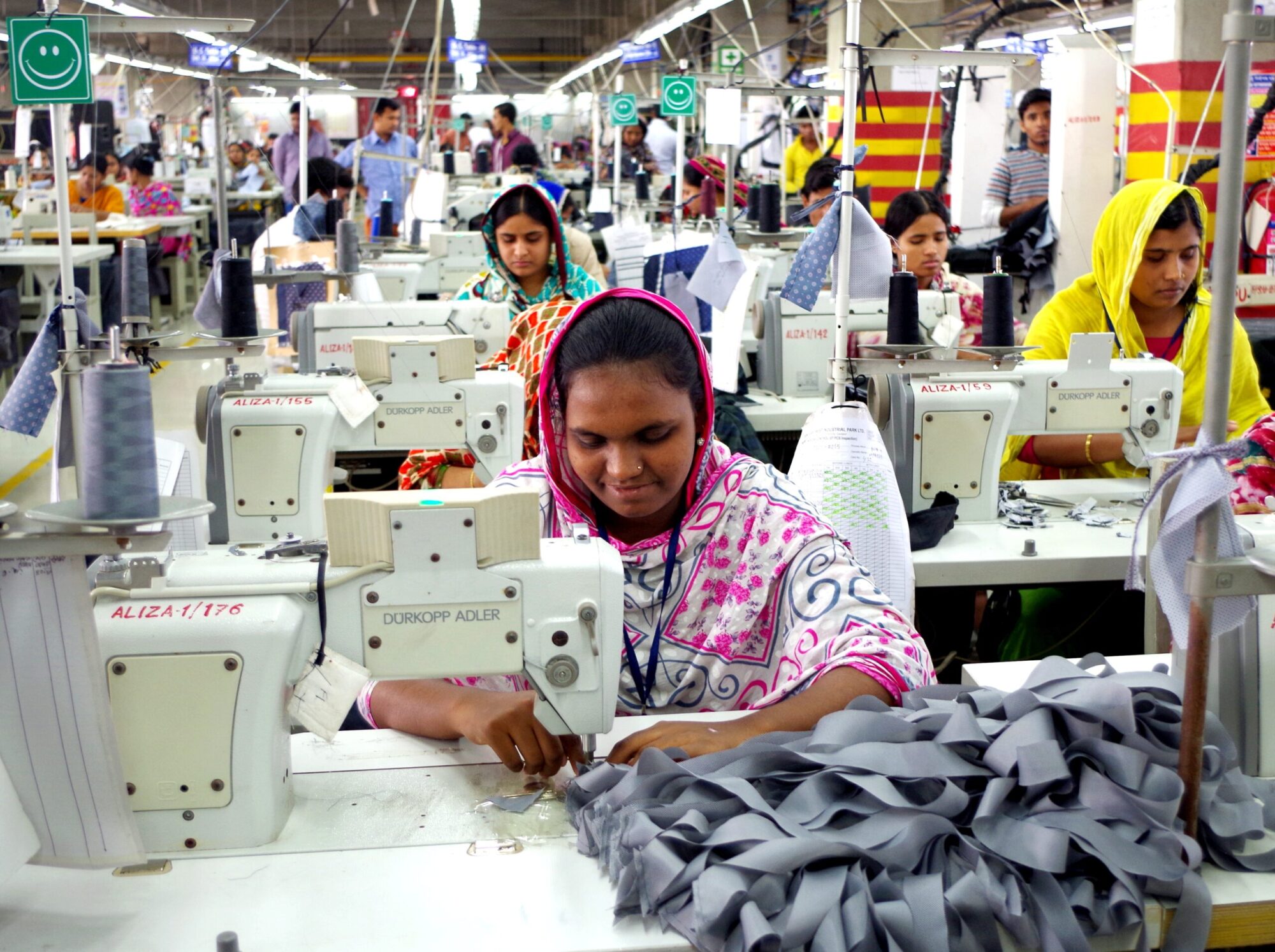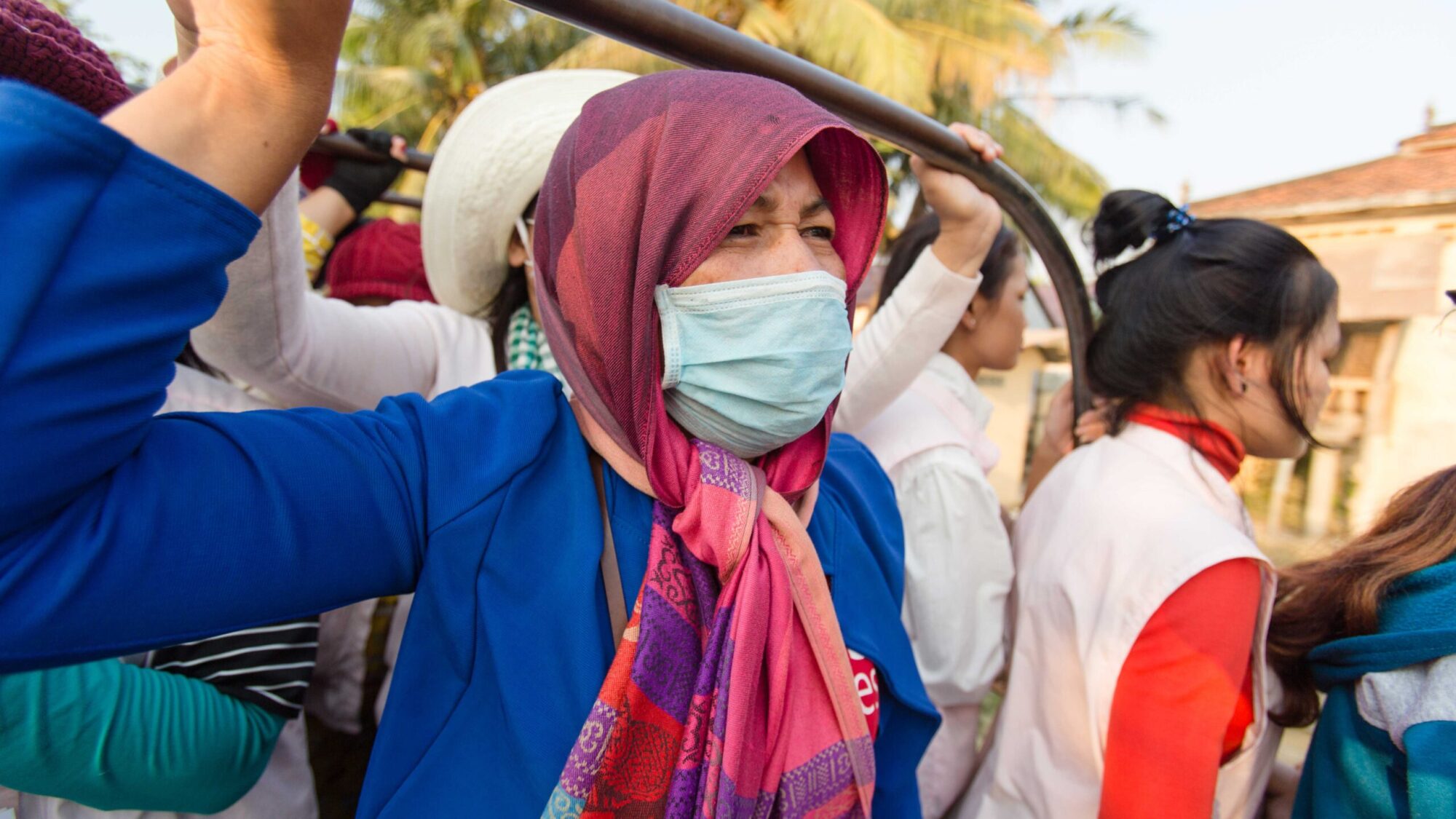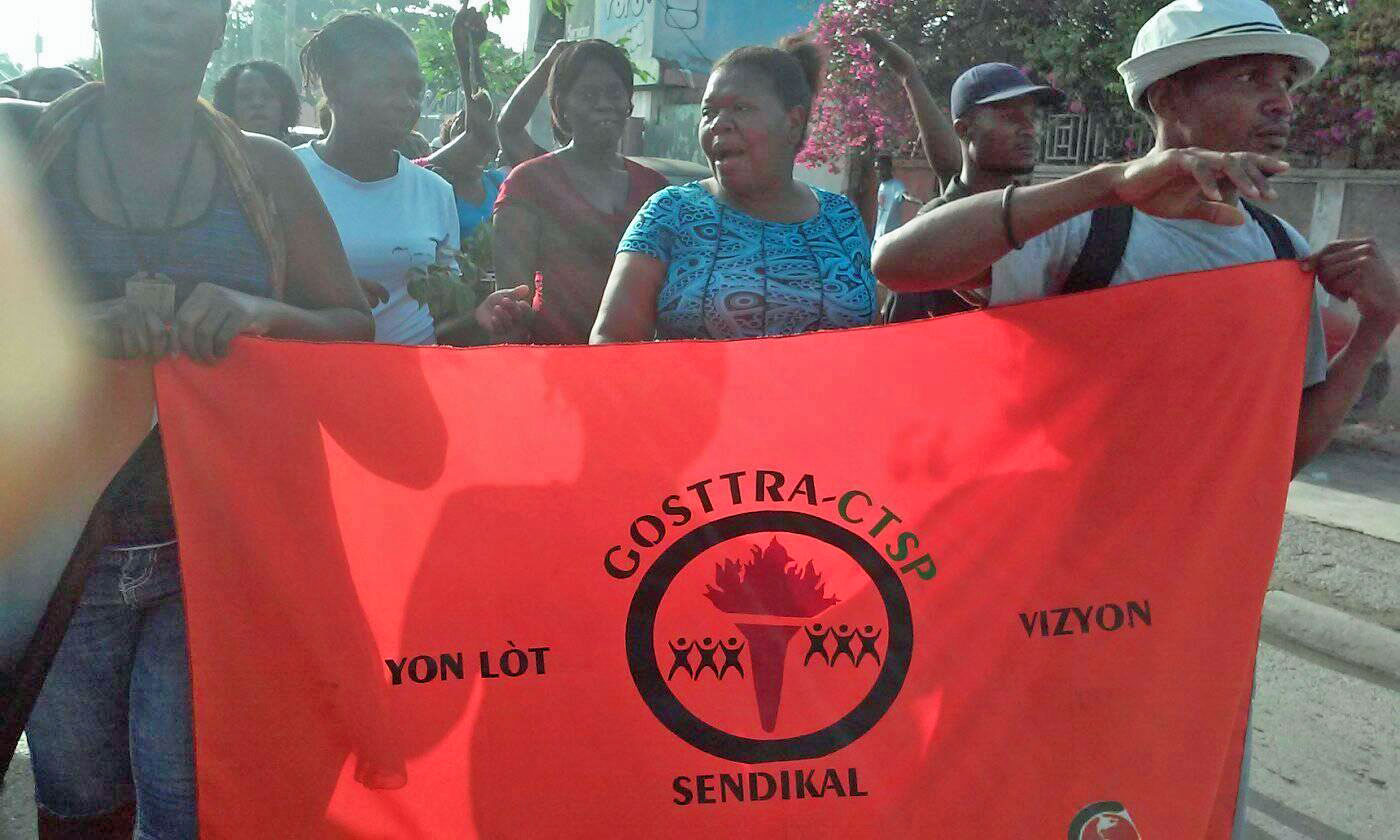Worker rights and human rights advocates are urging multinational corporate fashion brands to commit to a binding successor agreement that will continue the pathbreaking work of the Accord on Fire and Building Safety in Bangladesh, a landmark agreement that made...
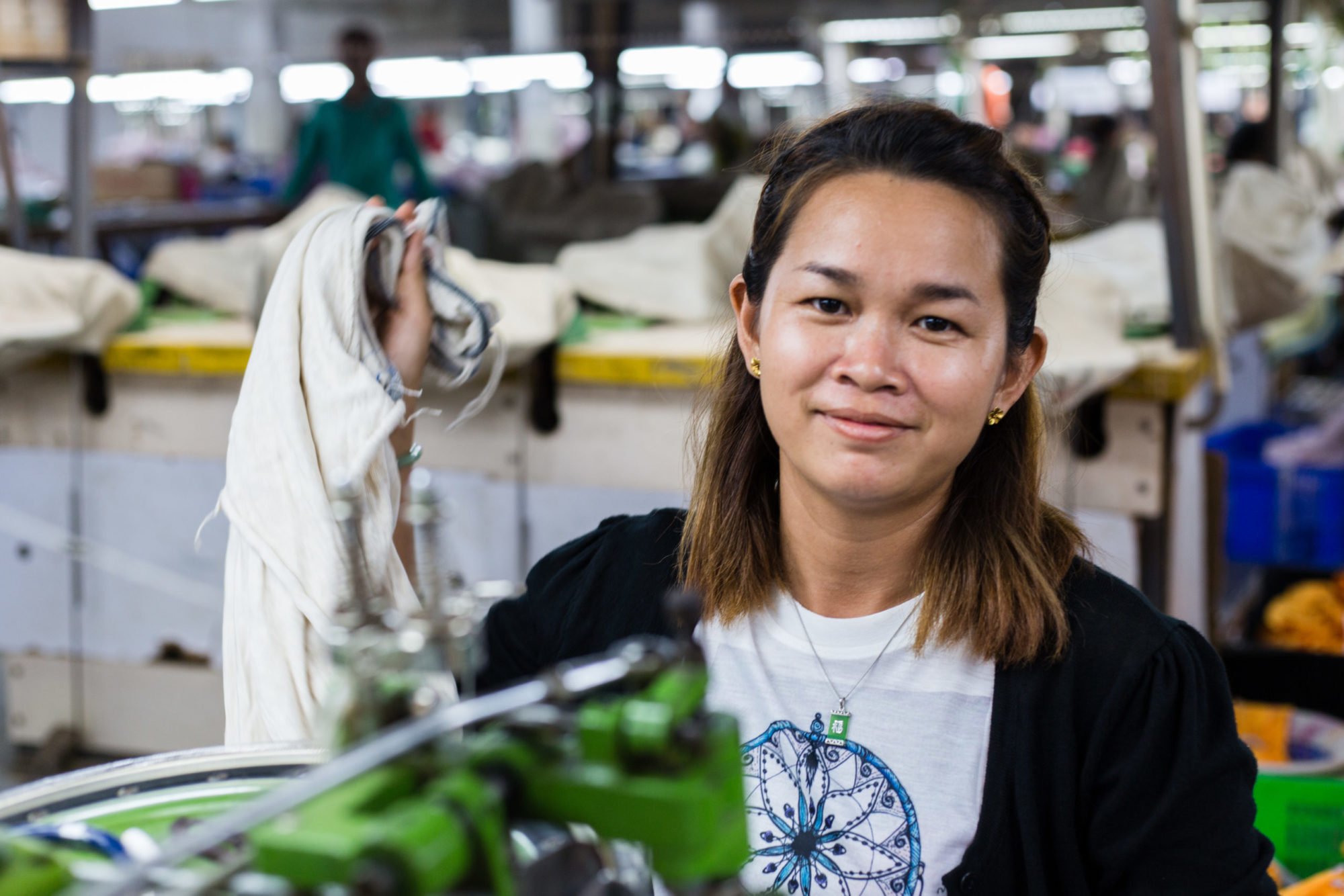
Heng Rithy, a garment worker in Cambodia, says her factory has good working conditions and she can support her family because workers have a union. Credit: Solidarity Center/Shanleystudio
An estimated 450 million people work in global supply chains—in textiles, retail, fisheries, electronics, construction, tourism, transport and agriculture. Economic globalization has created benefits for consumers, business and suppliers, but the practice of sourcing goods and services from countries where wages are low and laws are lax often results in jobs that are insecure and informal, involving dangerous workplaces, forced overtime and even slavery.
The Solidarity Center works with unions, worker associations and other allies in countries throughout the global supply chain in countries such as Bangladesh, Honduras, Lesotho, Morocco and Uzbekistan to address poverty wages, dangerous and unsafe working conditions and limited rights on the job.
For instance in Lesotho, the Solidarity Center partnered with labor rights and women’s rights organizations to negotiate a worker-centered, precedent-setting program to comprehensively address the rampant gender-based violence and harassment denying thousands of women garment workers a safe and dignified workplace. The Solidarity Center is helping lead training in addressing and preventing sexual harassment and other forms of gender-based violence among 10,000 workers at five factories there.
Migrant workers comprise a large part of the global supply chain, traveling to countries such as Malaysia to work in factories and to Gulf countries as domestic workers. The Solidarity Center partners with unions such as the Central Organization of Trade Unions-Kenya and the Kuwait Trade Union Federation to advocate for policies and legislation that address the exploitation and abuse migrant workers face, and educate workers who plan to work abroad about labor laws and workplace rights in their origin and destination countries.
Survey: Cambodian Workers Struggle to Survive in COVID-19
Half or more workers in key Cambodian industries were suspended for three or four months, and most were unable to support themselves on government aid during the pandemic, according to a new study that put hard data to the suffering of the country’s low-wage workers....
Haiti Garment Workers Negotiate Landmark Health Payment
Garment workers and their union in Haiti are hailing a landmark settlement with a factory in Port-au-Prince that provided a total of $15,480 in back pay to 1,200 workers. The compensation covers 20 percent of the amount the employer deducted from workers’ paychecks...
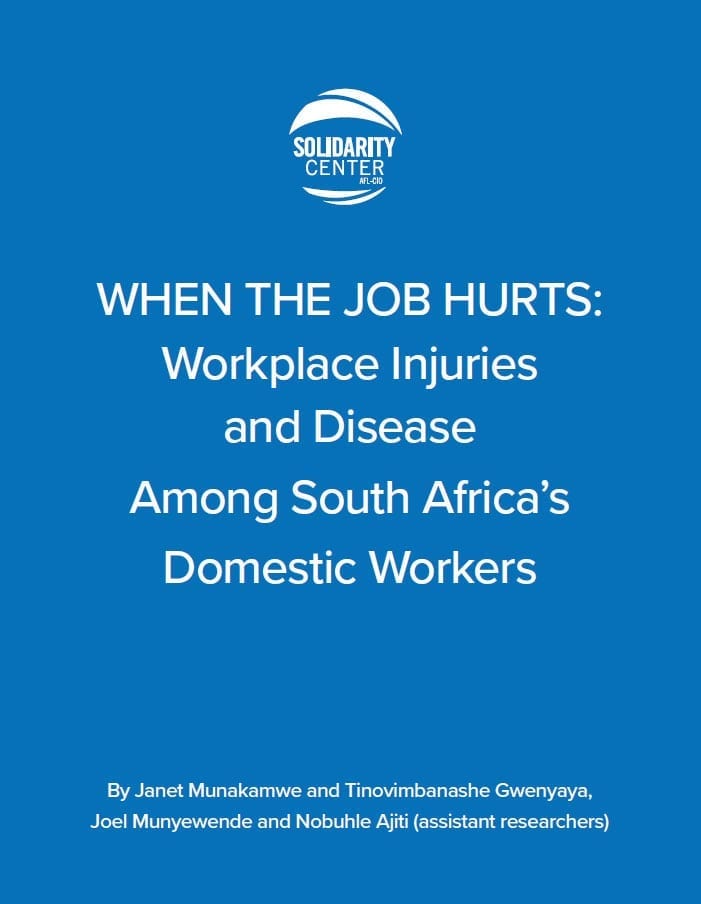
When the Job Hurts: Workplace Injury and Disease among South Africa’s Domestic Workers
Through individual case studies and legal analysis, When the Job Hurts demonstrates the need for domestic workers in South Africa to receive the same coverage under the country's job safety and health compensation law as other workers. Download report.
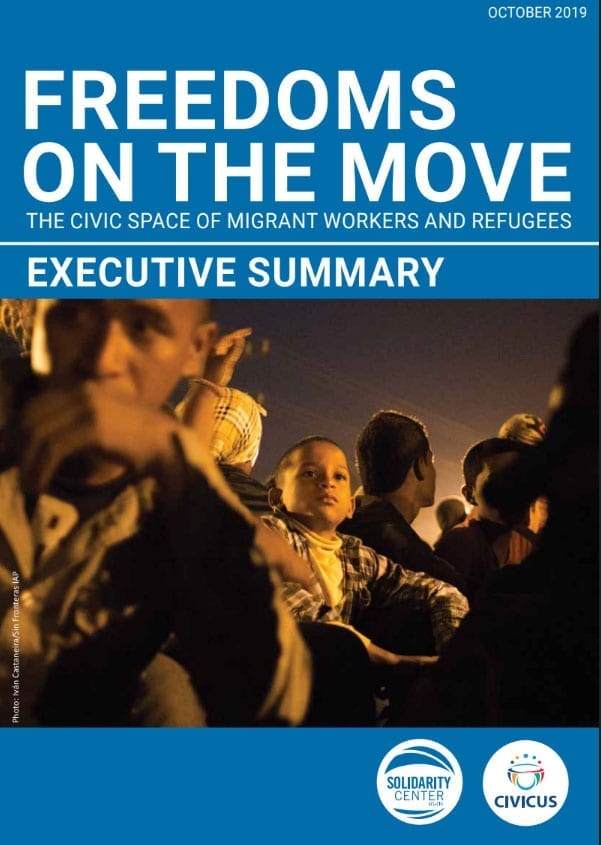
Freedoms on the Move: The Civic Space of Migrant Workers and Refugees
Freedoms on the Move, a new report by Solidarity Center and CIVICUS, makes clear that many migrant workers and refugees want to have a say in their communities and their workplaces, and in the decisions that affect their lives—and is an urgent call to action for...
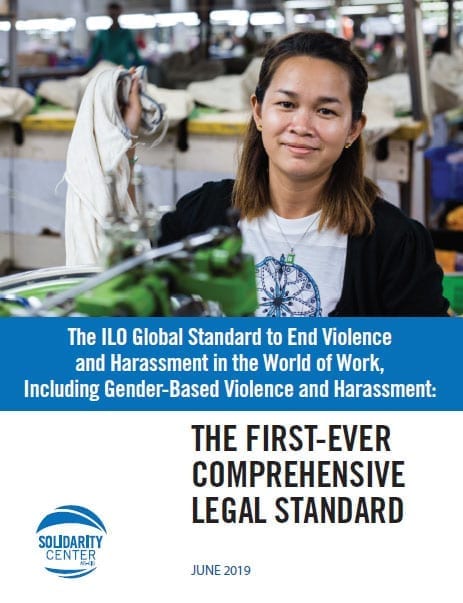
ILO GBV at Work Standard: First-Ever Comprehensive Legal Standard
A Solidarity Center legal analysis shows the proposed ILO convention on gender-based violence and harassment at work is necessary because no global binding instrument exists that comprehensively addresses violence and harassment in the world of work, including...
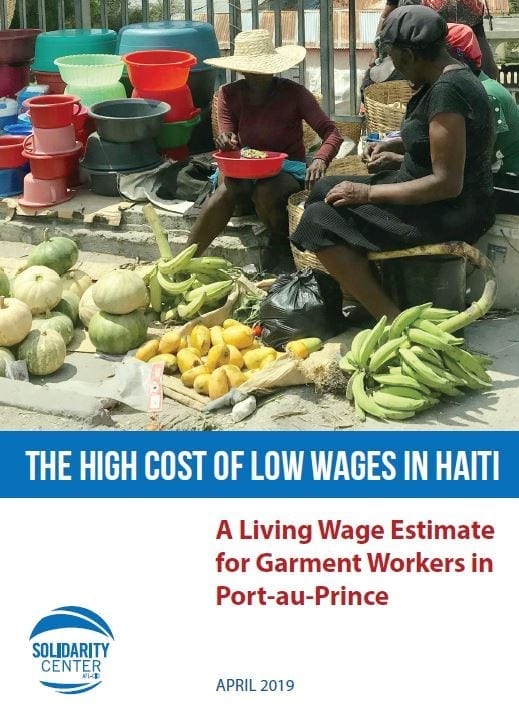
The High Cost of Low Wages in Haiti (2019)
Haitian garment workers face increasing difficulty in covering basic expenditures as prices soar while wages hover far below the cost of living. Download here in Creole. Download here in English. Download here in French.
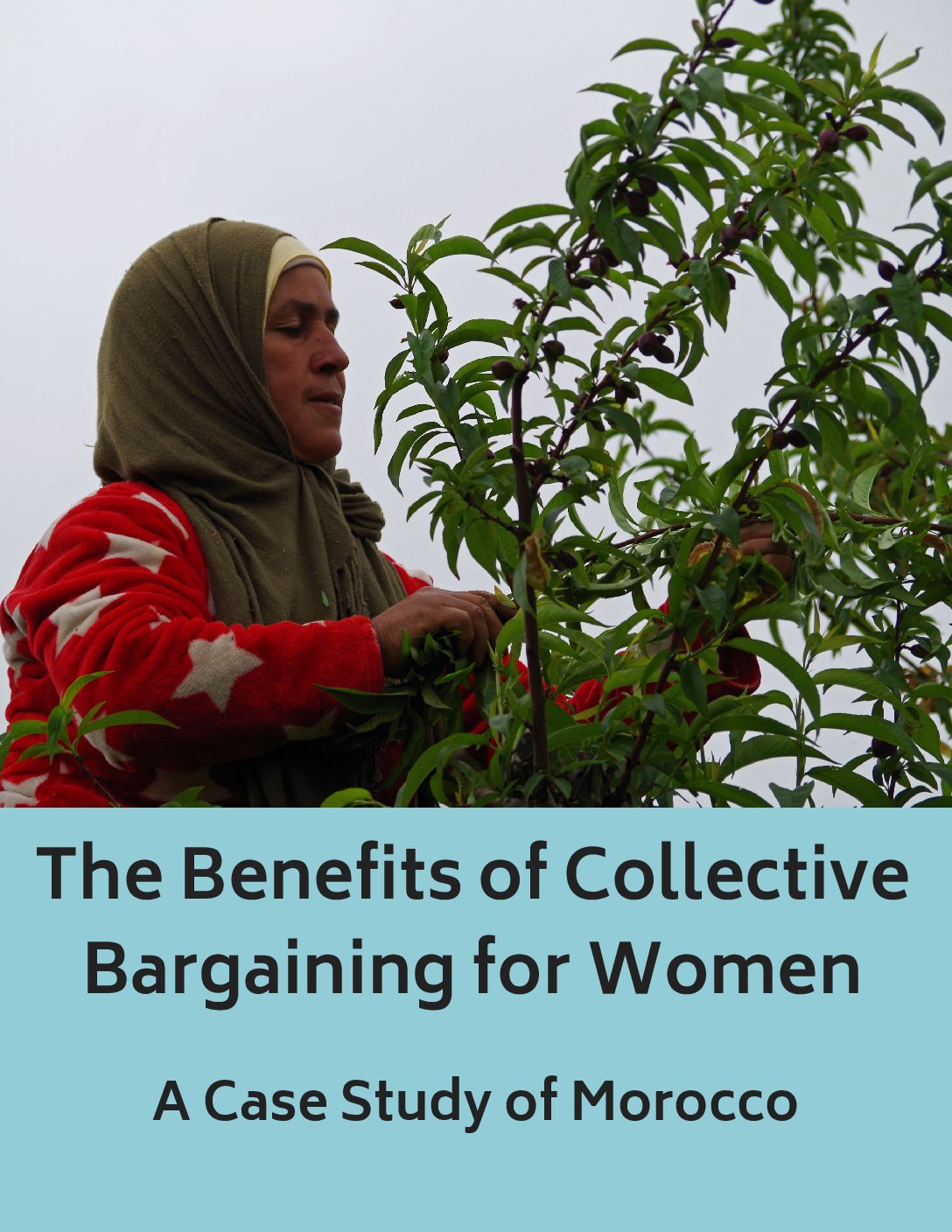
The Benefits of Collective Bargaining for Women: A Case Study of Morocco
This study by the International Center for Research on Women (ICRW) and Solidarity Center finds women workers in Morocco’s fertile Meknes region are making big gains in gender equality on the job through their union, the Confédération Démocratique du Travail (CDT)....
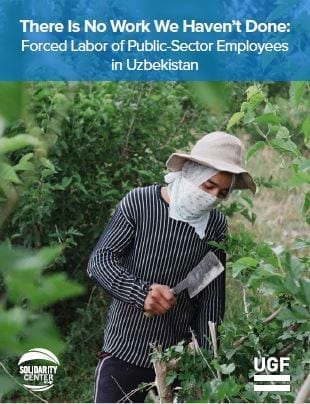
There Is No Work We Haven’t Done: Forced Labor of Public-Sector Employees in Uzbekistan
Although the government of Uzbekistan has made progress on ending child and adult forced labor in the cotton fields after more than a decade of international pressure, a new report finds that forced labor remains rampant in other arenas of Uzbek life, affecting...

